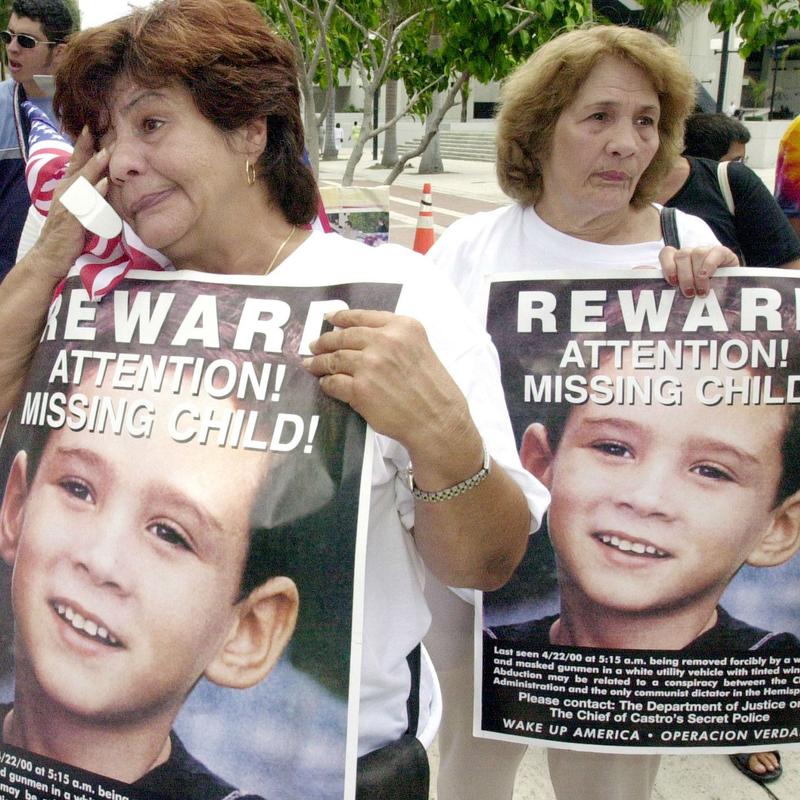
Brooke Gladstone: From WNYC in New York this is On The Media. Bob Garfield is away this week, I’m Brooke Gladstone. This week after more than 50 years of frozen diplomatic ties, the US re-opened it’s embassy in Havana, and the Cuban flag was raised over their new embassy in DC. Secretary of State John Cary was there.
John Cary: This is the first visit to the department of state by a Cuban prime minister since 1958.
Brooke: We are not the best of friends, not while the trade embargo persists, not while the Guantanamo bay prison remains open, not while Cuba jails dissidents and restricts internet access. But the Obama administrations actions on Cuba are nonetheless historic and a long time coming. In fact, Tim Padgett, Americas editor at WLRN in Miami, says the path to normalization would have remained impassable were it not for a certain story that made headlines 15 years ago.
CLIP
Elian was just 5 when a smugglers boat headed to the United States flipped over and killed his mother. He was found clinging to a inner tube and handed over to relatives in south Florida.
CLIP
More than 100 US immigration agents, some with guns drawn, forcefully removed Elian from the little Havana home of his great uncle Lazaro Gonzales in a lightning pre-dawn raid.
Brooke: The story of the adorable Cuban boy caught in a political tug of war transfixed US audiences for 7 months. For Tim Padgett, who covered the Elian Gonzales saga for Time magazine, it was all encompassing.
Tim Padgett: My son too was five or 6 years old and I remember coming home one night, a little late from covering this whole mess in Little Havana, and even as I sat down for dinner that night with my family I was still watching out of the corner of my eye on network news. (And) my son abruptly said "daddy, why are you spending so much time with that little boy?".
Brooke: Tell me about what you were watching out of the corner of your eye. What were the dominant tropes in the coverage?
Tim: We focused too much on the micro custody battle. Too much on that sensational family drama. I remember one of the few scoops I had was when I found out that one of the ways Marisleysis, the cousin who cared for Elian the most when he was here, every day she would apparently pour him chocolate milk and remind him “you can’t get this back in Cuba”. Those are the sort of things I think we focused on, when really there was a larger and more important story to be told about this dynamic between Fidel Castro and the Miami exiles. As one more moderate Cuban American here told me, Fidel and the exile leadership need this battle the way you and I need oxygen.You have to understand that by 1999 both Castro and the exiles were beginning to feel their geo-political relevance waning. This was really sort of a last gas on the part of both of them to try and get that relevance back.
Brooke: One of the points you’ve made was that so much of what were seeing today, in regard to the normalization of relations between our two countries, grows out of the way the national media specifically portrayed the Cuban American community.
Tim:This was really the first time the community in Miami had ever really been scrutinized by the national media, and the national media was a little shocked I think to see not just the passion and the fervor in the exile community, but also a sort of intolerance for anyone who disagreed, for example, that Elian should remain here. If you disagreed with their position, you were somehow anti Cuban-American. What the national media attention and scrutiny brought out was this concern that the exile community here was behaving the way it had always criticized Fidel Castro for behaving, with this sort of authoritarian intolerance. That helped discredit this traditional old guard, hard line exile leadership and allow more moderate Cuban American voices to come to the forefront. I really think that’s what has brought us, 15 years later, to where we are now in terms of this historic change in Cuba policy that we’re seeing.
